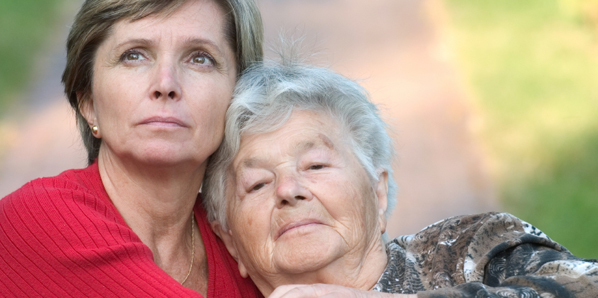Caring for elderly parents: How to get your siblings to help
Story of the month: “Caring for elderly parents: How to get your siblings to help.”Today is "Story of the month" day on the blog! This is when we look at the post that garnered the greatest response from you, our readers. It’s a post that was so popular and useful, that it is worth checking out again. This month, that post is this one:

In last month’s blog, we talked about ways to help your aging parents to accept help. Today, it’s about getting your siblings onside to participate, share the load and the expenses.
You’re such an alarmist - Mom can decide herself if she needs help.”
Kathie’s mom is 85 and living alone. She speaks to her mom daily and visits every few days.
Her brother Gordon lives an hour away and talks to his mom a few times a month, usually on Sunday nights.
Kathie attends to her mom’s every need, and often has to miss work to take her mom to appointments or do errands for her. When she asks Gordon for help, he questions the need for all this assistance.
It’s simplistic to say that Kathie is panicking, and that her brother is in denial; Kathie is too close to the situation, and her brother too removed from it. And what about Mom herself? Chances are she’s also unwilling to face her limitations.
Rather than bickering, here are some practical tips:
- Set up a routine that allows your mom her privacy, but has built-in observation points
- For example, between the cleaning lady, hairdresser trip, bridge club and weekly taxi-cab grocery trip, someone has subtly checked on her almost every day
- If Mom’s difficulties are temporary due to an illness or recovery, consider a ‘respite’ stay in a retirement home where she can the care and social support she needs
If you still cannot agree on Mom’s requirements, consider an independent assessment by a social worker, nursing agency or Local Health Integration Network and build a list of needs from their professional opinion.

“I’m always stuck doing things for Mom – why won’t my brothers help?”
Part of Kathie’s reaction may be resentment that her brother never offers any assistance with shopping, cleaning, medical appointments or support. Caregiving support typically falls to daughters, and often increases by default, until the daughter is near the breaking point. Sons are reluctant to provide hands-on care, and are unsure about contributing in other ways.
Here are some ideas:
- Get past the family roles. Kathie was always the little sister; although she was shouldering most of the burden, she was not conditioned to making demands in her brother, and her mother ‘wouldn’t dream of bothering Gordon with this little thing’
- Speak up. Verbalize your feelings, even if it’s in writing or via a third party, or resentments will fester
- Recognize the contribution. If Kathie researched the market rate for her services; putting a dollar figure on her efforts would make her feel more valued
- Make a direct request. Kathie could make a list of what her mom needs and specifically ask and match it to her brother’s skills and abilities; a handy type of guy might take on all house repairs; another might be better at setting up electronic bill paying; another might not be able to do anything hands-on, but would fund the cab service and cleaning lady
- Back off! Kathie felt her brother was too slow with repairs and disliked the cab driver; however, her mom was perfectly content. Kathie had to realize asking for help meant relinquishing control – exactly what she’d been preaching to her mother!
****
Related Articles:
Four signs your elderly parents need help at home
Caregiver guilt: Allowing ourselves to dream about the future
Emotionally needy parents


